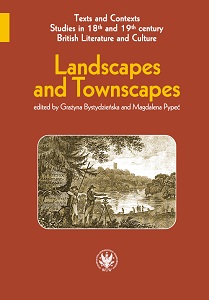Multiplying Unintelligibility: Joyce, Schizophrenia, Cities and Crime
Multiplying Unintelligibility: Joyce, Schizophrenia, Cities and Crime
Author(s): Jeremy Tambling
Subject(s): Theoretical Linguistics, Applied Linguistics, Studies of Literature, 19th Century, Philology, British Literature
Published by: Wydawnictwa Uniwersytetu Warszawskiego
Keywords: Joyce; Ulysses; schizophrenia; city; crime
Summary/Abstract: The attempt to ‘read’ the city and so to master it has been the subject of so much writing: Wordsworth, Blake, De Quincey, Dickens, Gissing, and Joyce being some examples from the ‘English’ tradition. But the modern city, unlike the village, or the country-setting, cannot be read, because it knows no inside or outside; its exterior harbours secrets as much as its interiors; put another way, the city allows no separation between the person who tries to understand it, and what is beheld: it allows no single-subject position to exist as the observer. This increasing failure, despite the attention given to conceptualising cities in such figures as Engels, or Georg Simmel, or Walter Benjamin, produces writing which may be considered as marked by a schizoid tendency, defining schizophrenia in terms of a loss of ego-boundaries, an inability to distinguish inside from outside, which may in turn be paranoiainducing. This article will move through several Romantic and nineteenth-century examples of such writing, focusing at last on James Joyce and Ulysses as texts which were in their own time thought of as schizophrenic, tending to the destruction of language as that which can distinguish inside and outside. What then is the relation of the city to schizophrenia? It is a question this article wishes to provoke.
Book: Landscapes and Townscapes
- Page Range: 57-78
- Page Count: 22
- Publication Year: 2021
- Language: English
- Content File-PDF

